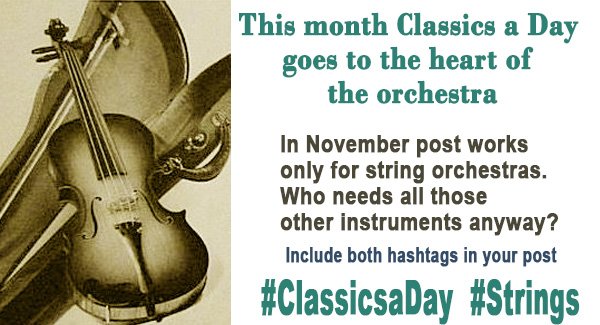#ClassicsaDay #Divertimento Week 5
The Classics a Day team decided to lighten up a little. Webster's Dictionary defines a divertimento as "an instrumental chamber work in several movements usually light in character."
For October, the challenge is to post videos of divertimentos written by classical composers.
I quickly discovered that every composer had a different idea of what "light in character" meant. The only thing any of these selections have in common is the title: divertimento. Here are my selections for the fifth and final week of the #ClassicsaDay challenge, #Divertimento.
10/28/24 Akira Yuyama: Divertimento for Marimba and Alto Saxophone
Yuyama is one of the major Japanese composers of the 20th Century. Songs and solo piano works make up a large part of his catalog. But he has written in other genres, especially chamber music.
10/29/24 Josef Fiala: Divertimento for Keyed Trumpet
Fiala was a Czech composer and oboist. He was also a contemporary of Beethoven. Fiala wrote concertos for a wide variety of instruments, including the then-newly invented keyed trumpet.
10/30/24 Malcolm Arnold: Divertimento for Flute, Oboe, and Clarinet
Today he’s best remembered for his score for “Bridge over the River Kwai.” But in his lifetime, Arnold was considered one of England’s greatest and most versatile composers.
10/31/24 Bela Bartok: Divertimento for Orchestra
Bartok composed his divertimento in 1939 for Paul Sacher and the Basler Kammerorchester. It was his final work before emigrating to the United States.
11/01/24 Andres Segovia: Divertimento
Segovia was one of the greatest guitarists in the world. He wrote a vast amount of music for his instrument. Yet within his catalog is just one divertimento -- this one for two guitars.

